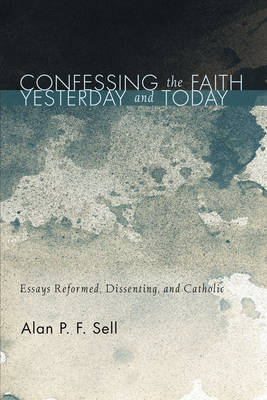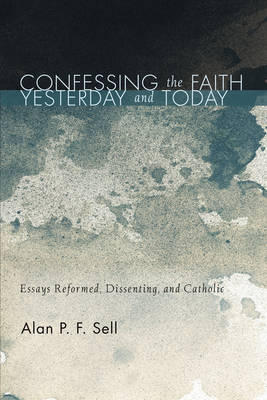
- Retrait gratuit dans votre magasin Club
- 7.000.000 titres dans notre catalogue
- Payer en toute sécurité
- Toujours un magasin près de chez vous
- Retrait gratuit dans votre magasin Club
- 7.000.0000 titres dans notre catalogue
- Payer en toute sécurité
- Toujours un magasin près de chez vous
Confessing the Faith Yesterday and Today
Essays Reformed, Dissenting, and Catholic
Alan P F Sell
Livre broché | Anglais
55,95 €
+ 111 points
Format
Description
What is it to confess the Christian faith, and what is the status of formal confessions of faith? How far does the context inform the content of the confession? These questions are addressed in Part One, with reference to the Reformed tradition in general, and to its English and Welsh Dissenting strand in particular. In an adverse political context the Dissenters' plea for toleration under the law was eventually granted. The question of tolerance remains alive in our very different context, and in addition we face the challenge of confessing and commending the faith in an intellectual environment in which many question Christianity's relevance and rebut traditional defenses of it. In Part Two it is recognized that Christian confessing is an ecclesial, not simply an individual, calling, and that the one confessing church catholic is visibly divided over doctrine and practice. Suggestions for ameliorating this situation are offered, though the final resolution may be a matter for the eschaton. Until then Christians are called to witness faithfully and to live hopefully as citizens of heaven. In an epilogue the challenges and pitfalls of systematic theology as a discipline involving both confession and commendation are explored.
Spécifications
Parties prenantes
- Auteur(s) :
- Editeur:
Contenu
- Nombre de pages :
- 318
- Langue:
- Anglais
Caractéristiques
- EAN:
- 9781620325940
- Date de parution :
- 26-02-13
- Format:
- Livre broché
- Format numérique:
- Trade paperback (VS)
- Dimensions :
- 152 mm x 226 mm
- Poids :
- 453 g

Les avis
Nous publions uniquement les avis qui respectent les conditions requises. Consultez nos conditions pour les avis.






